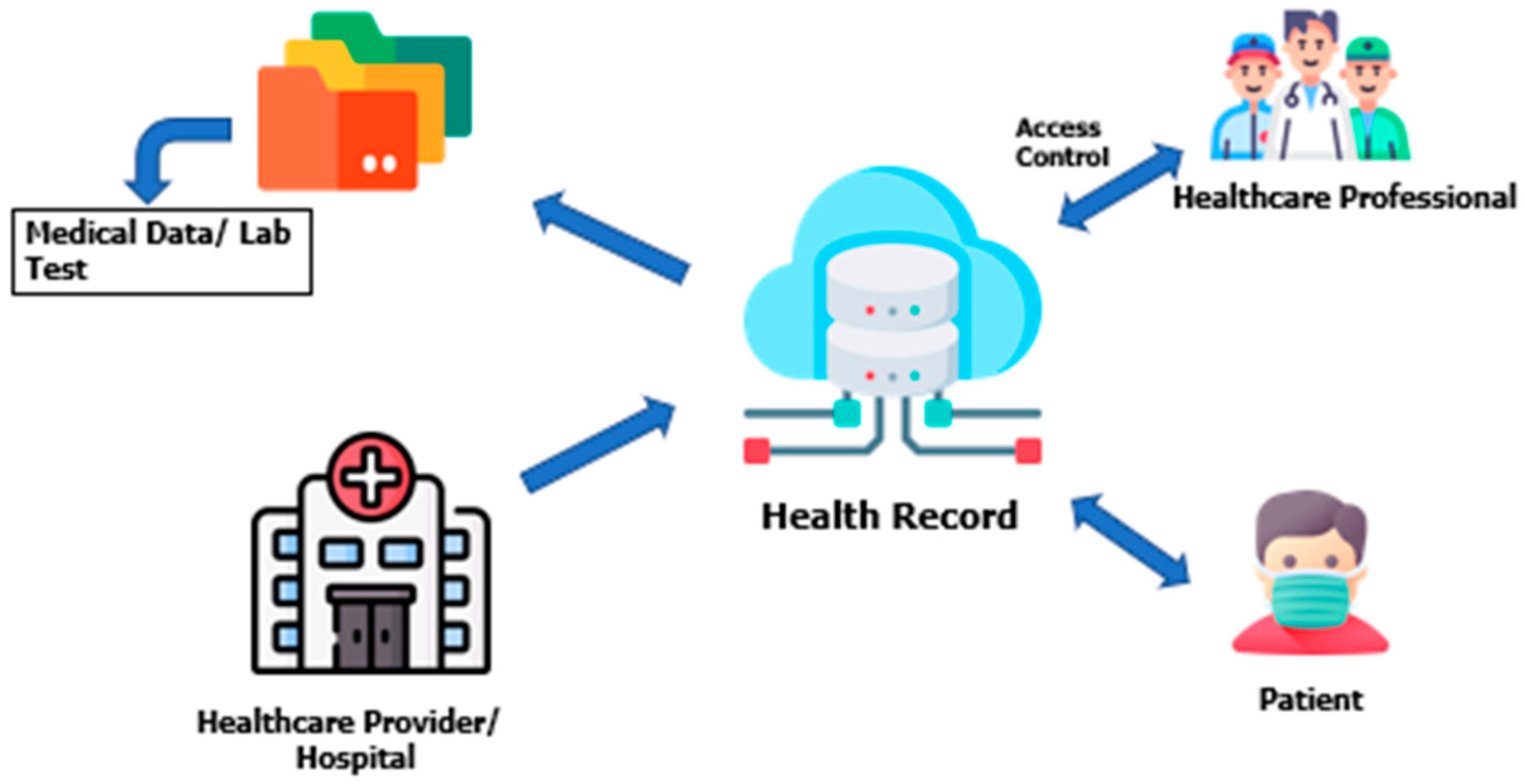Blockchain in Personalized Healthcare: Patient-Owned Data
Blockchain technology has garnered significant attention across various industries, but its application in healthcare is particularly transformative. As healthcare systems worldwide grapple with data privacy concerns and patient autonomy, blockchain offers a new paradigm where patients can take control of their own medical data.
This shift toward patient-owned data not only enhances privacy but also enables more personalized healthcare.
In this article, we’ll explore how blockchain is reshaping personalized healthcare by giving patients ownership over their data, while highlighting the challenges and future prospects of this revolutionary approach.
The Role of Blockchain in Data Ownership
At its core, blockchain is a decentralized and immutable ledger that records transactions across a network of computers. This transparency and security make it an ideal solution for managing sensitive healthcare data. Traditional healthcare systems rely on centralized databases, where patient records are stored in silos and controlled by healthcare providers, insurers, or government entities.
However, these centralized systems have inherent weaknesses, such as data breaches and limited patient access to their own health information.
Blockchain changes this dynamic by allowing patients to store and control their own health data on decentralized networks. Each patient can generate a unique cryptographic key that grants access to their data, which they can share with healthcare providers as needed.
This ensures that patients maintain full ownership over their medical information, eliminating the need for intermediaries to manage access.
- Patients control their own data through private cryptographic keys.
- Healthcare providers gain access only when the patient consents, ensuring greater privacy.
- Blockchain networks are decentralized, reducing the risk of single points of failure.
The implications of this patient-centric model are profound. By owning their data, patients can participate in their healthcare decisions more actively and tailor treatments to their specific needs. Furthermore, the decentralized nature of blockchain ensures that health data remains secure, reducing the risk of cyberattacks and unauthorized access.
Personalized Healthcare: A New Frontier
Personalized healthcare refers to the customization of medical treatments based on an individual’s genetic makeup, lifestyle, and health history. It contrasts with the traditional one-size-fits-all approach, which often overlooks the unique differences between patients. The key to personalized healthcare is having accurate, comprehensive, and up-to-date data on each patient. 
However, centralized health records often lack interoperability, making it difficult to integrate data from various sources, such as hospitals, laboratories, and wearable devices.
Blockchain solves these challenges by creating a unified, secure, and easily accessible repository of patient data. With blockchain, health information from multiple sources can be combined into a single, patient-owned record.
This unified record can be used by healthcare professionals to develop personalized treatment plans based on the individual’s complete medical history.
- Unified patient records help identify the best treatment options based on individual data.
- Wearable devices and health apps can continuously feed data into the blockchain, providing real-time insights.
- Genetic data, lab results, and lifestyle factors can be integrated into a single blockchain ledger for comprehensive analysis.
In addition, blockchain allows for enhanced collaboration between patients, doctors, and researchers. By sharing anonymized health data with researchers, patients can contribute to medical studies without compromising their privacy. This democratization of data can lead to faster discoveries and innovations in healthcare, ultimately benefiting patients through more effective treatments.
Overcoming Challenges in Blockchain-Based Healthcare
While blockchain holds immense promise for personalized healthcare, several challenges must be addressed to fully realize its potential. One of the primary obstacles is regulatory compliance. Healthcare is a highly regulated industry, with strict laws governing patient privacy and data security, such as the Health Insurance Portability and Accountability Act (HIPAA) in the U.S. Blockchain-based healthcare systems must navigate these regulations to ensure that patient data remains protected.
Another challenge is scalability. Blockchain networks, particularly public ones, often struggle with processing large volumes of transactions quickly. In healthcare, where time-sensitive decisions are critical, any delay in accessing or sharing patient data could have serious consequences. Developing more efficient blockchain platforms with higher transaction speeds is essential to overcoming this barrier.
- Regulatory frameworks must evolve to accommodate blockchain’s decentralized model.
- Blockchain platforms need to improve scalability for real-time healthcare applications.
- Patient education is crucial to ensure individuals understand their rights and responsibilities when managing their data.
Additionally, there is the issue of interoperability. Although blockchain can unify health data, integrating legacy systems with blockchain platforms remains a complex task. Many hospitals and healthcare providers use proprietary software systems that do not easily interface with blockchain technology. Ensuring that existing healthcare systems can seamlessly connect with blockchain will be vital for widespread adoption.
The Future of Patient-Owned Data
The future of healthcare lies in empowering patients through data ownership and personalized treatment. Blockchain offers a secure, transparent, and decentralized method for managing health records, giving patients unprecedented control over their information.
As the technology matures and more healthcare providers embrace decentralized systems, we can expect a fundamental shift in how healthcare services are delivered.
In the future, patients could use blockchain to:
- Share their health data seamlessly with specialists across the globe, enabling second opinions without the need to transfer physical records.
- Access real-time updates from wearable devices and integrate that data into their personal health ledger.
- Contribute anonymized data to research institutions, accelerating the development of new treatments while preserving privacy.
Blockchain is more than just a buzzword in healthcare; it is a catalyst for change. By giving patients ownership of their data, blockchain not only strengthens data security but also enhances the quality of care through personalized treatment options. The journey toward widespread adoption may be challenging, but the potential rewards—more empowered patients, improved data security, and better health outcomes—are well worth the effort.






































